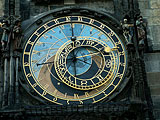Central Europe: Naïve Nostalgia
By Jeremy Druker for ISN
US President Barack Obama has been in office for only six months, and already a group of Central and Eastern European leaders have started worrying if their region has been forgotten, or, better put, sacrificed for the sake of better relations with Russia.
In a external pagelengthy open letter sent to Obamacall_made earlier this month, 21 signatories - mainly former prime ministers and presidents, including Vaclav Havel and Lech Walesa - expressed their worries about a lack of engagement in a region that the US helped rescue from the Soviet embrace and then guide through the transition to democracy. They question NATO’s commitment to their security in the wake of the Russia-Georgia war, and point to the growing threat of nationalist forces in their midst as a prime example that all is actually “not well” in the region.
Warning that “Russia is back as a revisionist power pursuing a 19th-century agenda with 21st-century tactics and methods,” the signatories also called on Obama not to succumb to a “realist” agenda and disregard “liberal democratic values” in exchange for Russian concessions in other strategic areas.
Some have called the letter’s tone sentimental, but it is more nostalgic, harking back to the 1990s, when Central and Eastern Europe was at the core of US policy. Many of the signatories remain grateful to the democratic leadership at the time, as they politically came of age during the Clinton administration, which pushed hard for NATO expansion when congressional approval was no guarantee.
Many of them former dissidents, they cringed when George W Bush entered the White House and babbled on about looking deeply into then-Russian president Vladimir Putin’s eyes and finding a man he could trust. They knew better than to trust a former KGB man.
At the same time, the letter seems out of touch, even naïve, when it comes to dealing with Russia. On one hand, the signatories welcome a “reset” of American-Russian relations, but on the other, they want Obama to talk tough with Moscow and NATO to “reconfirm its core function of collective defense.”
Yet somehow the outcome is supposed to be different than the Bush years, which ended with relations with Russia at one of the lowest points since the end of the Cold War. Of course, the debatable decision to station parts of a missile defense shield in Poland and the Czech Republic had something to do with that, but so did Washington’s opposition to the war in Georgia, support for Kosovo’s independence, and other issues that were more about principles than US self-interest.
In addition, while the signatories seem bent on avoiding unequivocal support for the missile defense shield, perhaps seeing the writing on the wall, they caution that “Abandoning the program entirely or involving Russia too deeply in it without consulting Poland or the Czech Republic can undermine the credibility of the United States across the whole region.”
In other words, the signatories want a US president who will stand up to Moscow, take seriously the shield project, strengthen NATO to address the Russian ‘revisionist’ threat, and ditch any notions of realism. But they fail to explain the magic formula for doing all of that, and still getting help from Russia in places such as Iran and North Korea - places that have, to the chagrin of the signatories, supplanted Central and Eastern Europe at the top of the US agenda.

